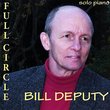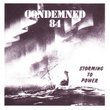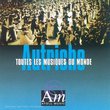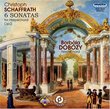| All Artists: Frederic Chopin, Maurizio Pollini Title: Chopin: Piano Sonatas Nos. 2 & 3 Members Wishing: 0 Total Copies: 1 Label: Dg Imports Release Date: 2/3/1986 Album Type: Import Genre: Classical Styles: Forms & Genres, Sonatas, Historical Periods, Romantic (c.1820-1910) Number of Discs: 1 SwapaCD Credits: 1 UPC: 028941534620 |
Search - Frederic Chopin, Maurizio Pollini :: Chopin: Piano Sonatas Nos. 2 & 3
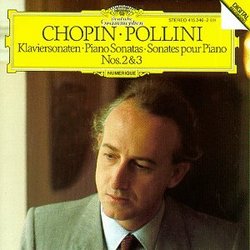 | Frederic Chopin, Maurizio Pollini Chopin: Piano Sonatas Nos. 2 & 3 Genre: Classical
![header=[] body=[This CD is available to be requested as disc only.]](/images/attributes/disc.png?v=a4e11020) ![header=[] body=[This CD is available to be requested with the disc and back insert.]](/images/attributes/disc_back.png?v=a4e11020) ![header=[] body=[This CD is available to be requested with the disc and front insert.]](/images/attributes/disc_front.png?v=a4e11020) ![header=[] body=[This CD is available to be requested with the disc, front and back inserts.]](/images/attributes/disc_front_back.png?v=a4e11020) |
Larger Image |
CD DetailsSimilar CDs
|
CD ReviewsThe Chopin sonatas have never been played like this before! Chip Hartranft | Arlington, MA | 01/31/2000 (5 out of 5 stars) "Maurizio Pollini is one of the most important pianists of this century, and this is one of his finest recordings. His approach to these familiar pieces is characteristically revelatory. As always, Pollini's supernatural control is fully at the service of a commanding musical sensibility to which sentimentality and neurosis are utterly foreign. He can play with a devastating power and intensity, of course - have movements 1 & 2 of the Bb minor sonata ever been rendered with such cosmic savagery? - but he is just as capable of heartbreaking lyricism, as in the hypnotic middle section of the Funeral March or the Largo of the B minor.Oddly enough, Pollini is often criticized for being 'cold'. His remarkable memory, control, and architectural sense of a piece can strike the casual listener as premeditated, it seems. In fact, his control permits him an astonishing degree of freedom, and his live performances are spontaneous and deeply felt. There is more to Maurizio Pollini than his celebrated technique, and these recordings show that he is one of the tenderest, most deeply committed pianists on record. A must-buy!" Wow! Christopher Smith | Atlanta, Georgia | 12/31/2000 (5 out of 5 stars) "Pollini's is easily the best interpretation of these sonatas I've ever heard. The standard take on these works is that they don't really have a coherent structure or traditional sense of development, and that Chopin just threw a bunch of brilliant but nevertheless disparate pieces together. In Pollini's hands the sustained unity of both is never in doubt. The "Funeral March" Sonata is miraculous. The first two movements have a wild, almost insane abandon about them, which make the hushed atmosphere of the slow movement even more menacing and intense. It's what I'd somewhat melodramatically call a dance of death in four movements. To be both manic and superbly controlled with one's playing seems a contradiction in terms, but believe me, Pollini does it. The third sonata is virtually unknown, but it is a lot like Chopin's other late work (the Bacarolle, the fourth Ballade) with its introspective, serene and meditative qualities. Although it's completely different in mood and tone from the other sonata, Pollini again is equal to the task. Pollini's Chopin is unique, and his rendition of the more intellectual works like the Etudes and the Preludes is second to none. Now he's shown what he can do with another dimension of Chopin, and to truly appreciate these sonatas, it's essential to listen to what he achieves here." Modernist approaches Romantic essentials and stuns you! dv_forever | Michigan, USA | 06/02/2007 (5 out of 5 stars) "Maurizio Pollini is a pianist with a very wide open view of the repertory. A lot of pianists who are known for their modernist chops, stay away from the great Romantics like Chopin, Liszt and Schumann. Pollini, unlike Glenn Gould for instance, has embraced all the great Romantic composers.
The imagination of the Romantics is a far cry from the rhetoric of the modernists and Pollini is unafraid to showcase his immense technique in Chopin, just as he unafraid to explore Schoenberg, Boulez or Luigi Nono. I have to admit that Pollini's take on these two sonatas and especially the funeral march sonata is much more intense and penetrating than most pianists who specialize in Romantic piano literature. Pollini has a mastery of structure that escapes most others. This is one of the finest performances of these pieces you'll ever find. The ultra-famous funeral march movement is particularly full of dramatic contrast. The stunning final movement of that sonata is not articulated as cleanly as I would have liked but that's a fault more on DG's recording than Pollini's playing. The sound is of mostly good quality which has some digital harshness here and there but nothing serious to detract from the monumental playing that you're getting. These recordings have also been re-released in a 2CD set of Chopin sonatas and variations, so if you can't find a used copy of this CD, try that set instead." |

 Track Listings (8) - Disc #1
Track Listings (8) - Disc #1